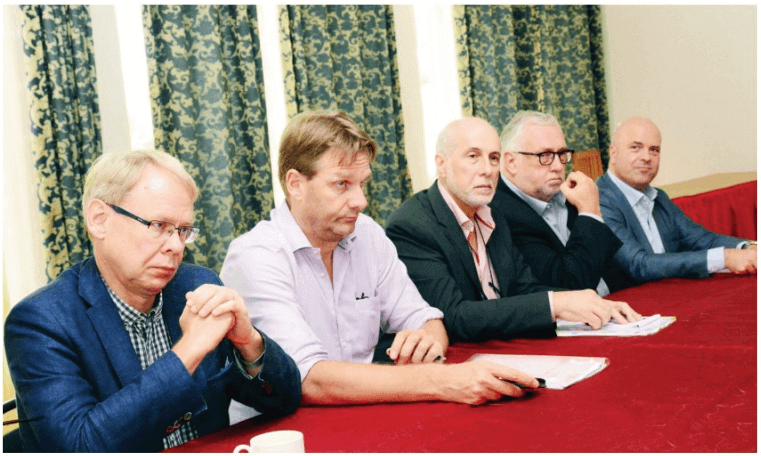European Union (EU) delegates are concerned about teenage pregnancies and forced early marriages in different parts of the country, referring to the increasing numbers as unacceptable.
The nine ambassadors, including Dr. Roswitha Kremser, the head of the office for the Austrian Development Cooperation, warned that teenage pregnancies and teen forced marriages, common in eastern Uganda were a violation of the rights of girls and women and needed to be addressed.
Kremser, who spoke to the press after a meeting with civil society and human rights defenders from the region at Mt Elgon Hotel in Mbale town on Tuesday, said early marriages in Uganda were at alarming levels.
The meeting was part of the commemoration of the International Human Rights Day marked worldwide She, however, said there was hope that the incidents, would decrease if all stakeholders focused on addressing issues behind the vice.
Kremser said the testimonies given by the human rights defenders involved in the fight child marriages and pregnancies were encouraging but cautioned that to fight against the practice and achieve the desired change, the stakeholders needed to get the support of the local leaders.
“The situation cannot be changed only by discussions in Kampala. We, therefore, need the support of the local communities and human rights defenders,” she said.
Other pertinent issues discussed in the meeting included cultural norms like women who are still blocked from inheriting property, the forced inheritance of widows, negative cultural norms that violate the rights of the girl child and women, detentions in violation of the 48-hour rule by the Police and difficulty of accessing justice.
William Carlos, the Irish ambassador, said the EU was concerned that discrimination against women still strongly exists, especially in eastern Uganda.
He said a lot of effort should go towards education. Carlos, however, credited the Government for giving people the liberty to express their issues, which he said was not the case in some countries.
He said the EU was advocating access to health services for women and girls, property rights for women and ways of engaging with local communities and development agencies, as well as the Government in relation to budgeting.
“Our main areas are the rights of women and girls. The fact that young girls get pregnant at an early age is something that needs to be addressed,” he stated.
Sarah Nakhumitah, the regional Uganda Human Rights Commission officer, said the early child and forced marriages are prevalent, especially in the Bugishu sub-region and Teso (particularly in Kaberamaido, Katakwi and Amuria districts), as well as Kepelebyong in Karamoja region.
Nakhumitah said the situation has been made worse by difficulties in accessing justice. She said in several societies communities still detest interference in their culture even when it violates the rights of women.
She gave the example of the female genital mutilation (FGM), which she said despite having been outlawed in 2010, has persisted.
“Many people who practice FGM still cherish it as a rite of passage from childhood to adulthood. They believe outlawing it undermines their culture,” Nakhumitah said.
She said there were efforts to sensitize men who are the custodians of culture to change their mindset
